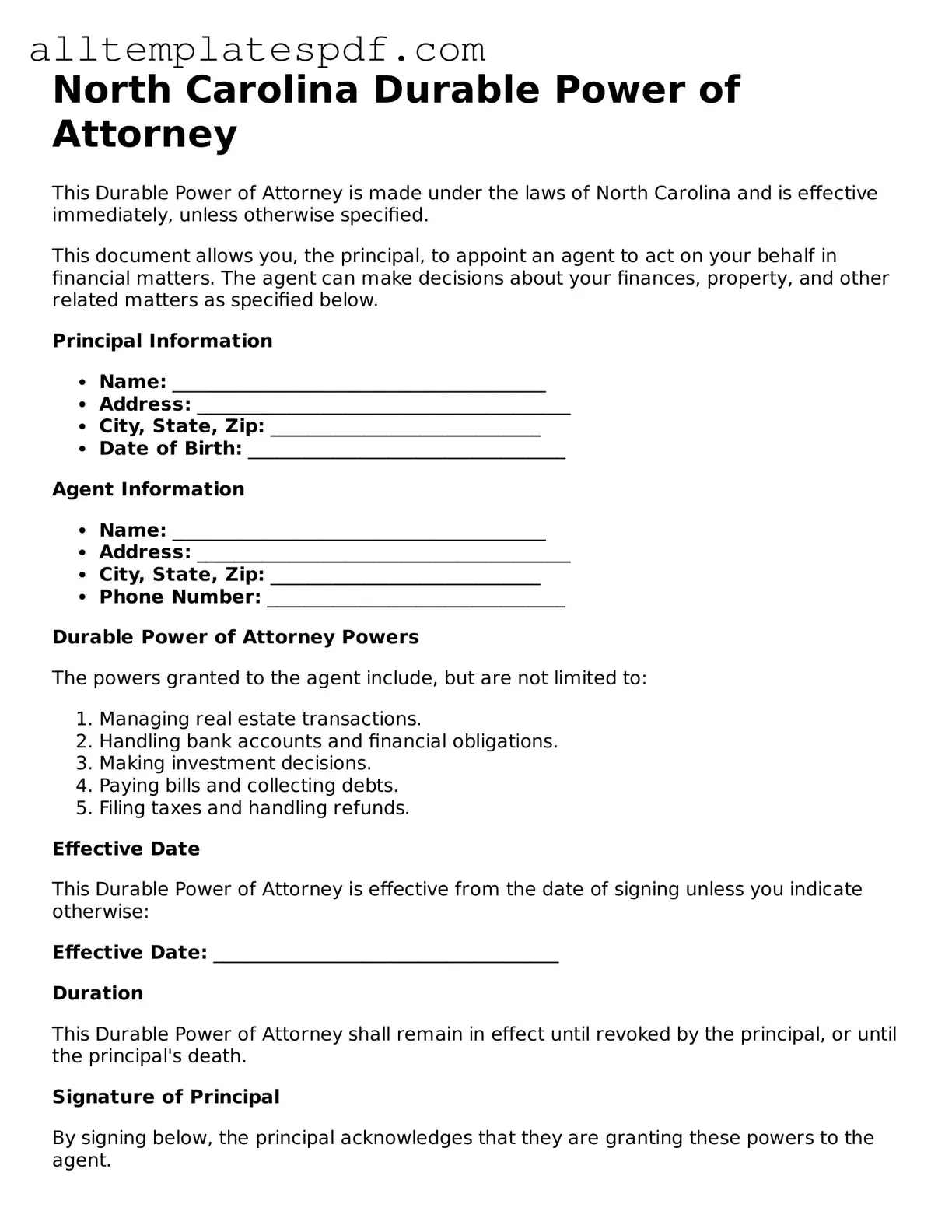Blank Durable Power of Attorney Template for the State of North Carolina
A North Carolina Durable Power of Attorney form is a legal document that allows an individual to designate someone else to make financial and legal decisions on their behalf, even if they become incapacitated. This form ensures that the appointed agent can act in the best interest of the individual, managing their affairs according to their wishes. For those considering this important step, filling out the form can provide peace of mind and clarity in future situations.
Ready to take control of your future? Fill out the Durable Power of Attorney form by clicking the button below.
Open Editor

Blank Durable Power of Attorney Template for the State of North Carolina
Open Editor
Fast and easy form completion
Complete Durable Power of Attorney digitally — fast and easy.
Open Editor
or
↓ Durable Power of Attorney PDF Form
